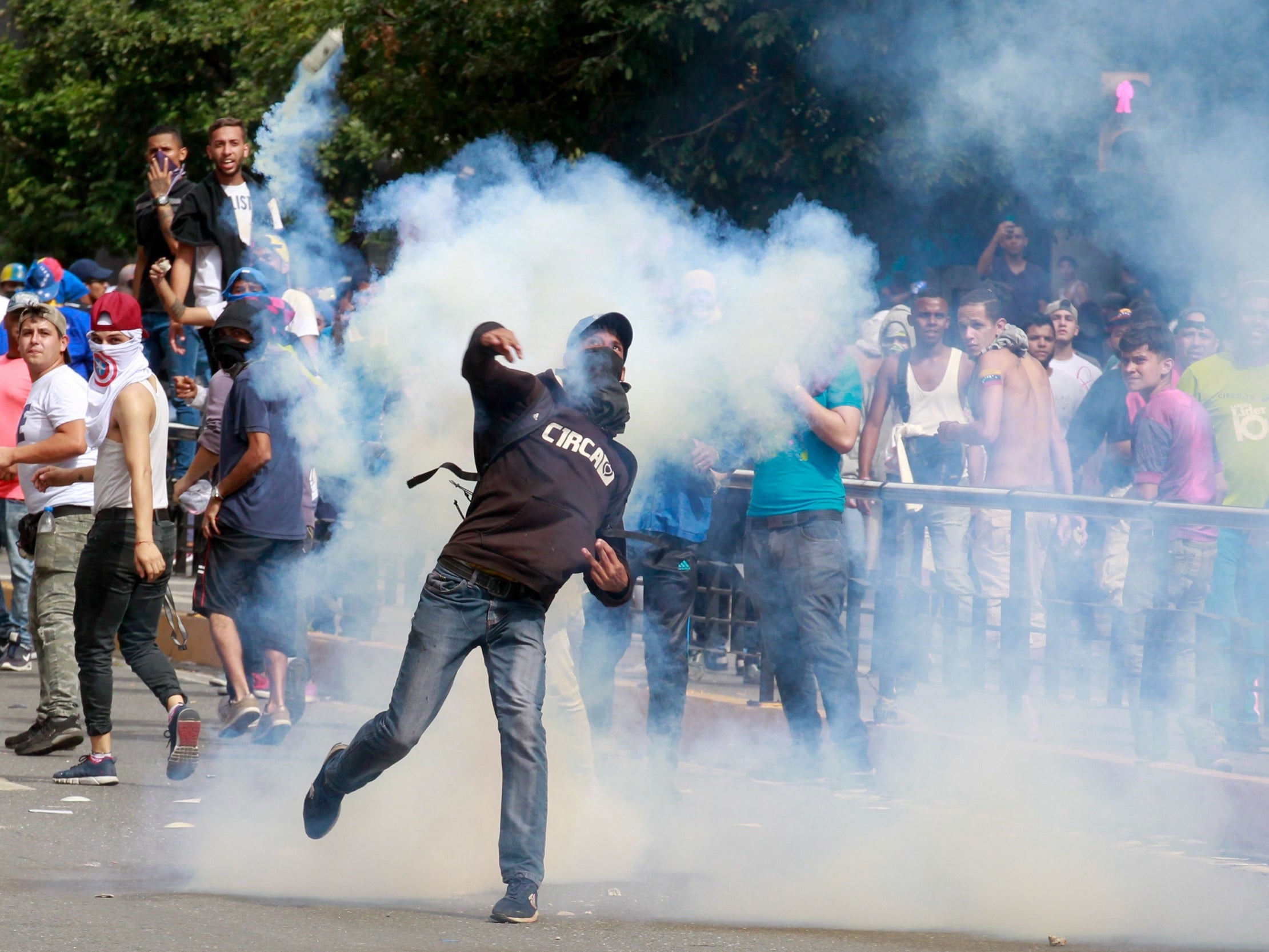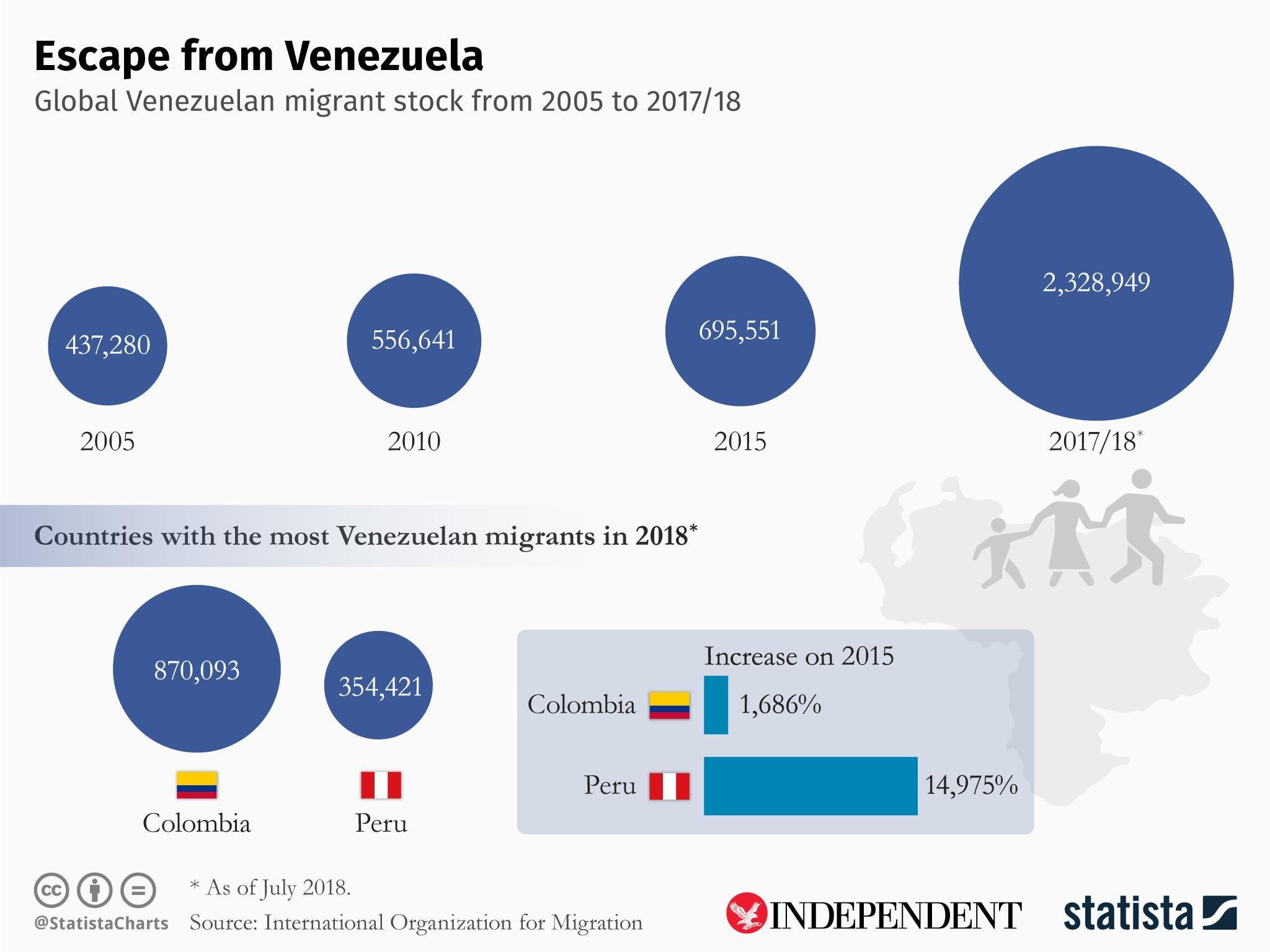Venezuela crisis: Seven killed in violent crackdown on protests as Maduro digs in for battle with Trump
Hundreds of thousands of demonstrators took to the streets across the country to protest election

Your support helps us to tell the story
From reproductive rights to climate change to Big Tech, The Independent is on the ground when the story is developing. Whether it's investigating the financials of Elon Musk's pro-Trump PAC or producing our latest documentary, 'The A Word', which shines a light on the American women fighting for reproductive rights, we know how important it is to parse out the facts from the messaging.
At such a critical moment in US history, we need reporters on the ground. Your donation allows us to keep sending journalists to speak to both sides of the story.
The Independent is trusted by Americans across the entire political spectrum. And unlike many other quality news outlets, we choose not to lock Americans out of our reporting and analysis with paywalls. We believe quality journalism should be available to everyone, paid for by those who can afford it.
Your support makes all the difference.At least seven people have been killed during unrest in Venezuela following mass protests against the South American country’s president Nicolas Maduro.
Hundreds of thousands of demonstrators took to the streets across the country in a bid to topple the socialist leader, who is clinging onto power amid political and economic crisis.
Juan Guaido, the new leader of the opposition-controlled National Assembly, declared himself the country’s interim president as he addressed cheering crowds in the capital Caracas on Wednesday.
The demonstrations had been planned by a newly invigorated opposition to coincide with the anniversary of the end of Venezuela‘s last military dictatorship in 1958.
Tensions have been escalating since Mr Maduro office for a second six-year term on 10 January following a widely boycotted election, described by several foreign governments as a sham.
Mr Guaido vowed to establish a transitional government until legitimate elections could be held, a move he said was the only way to end “dictatorship” in Venezuela, where millions have fled in recent years to escape sky-high inflation and shortages of food and medicine.
In a united and seemingly coordinated front, the US, Canada and another dozen mostly Latin American countries, including Brazil, Colombia and Argentina, quickly announced that they supported Mr Guaido’s claim to the presidency. Uruguay and Bolivia did not support the move, while Mexico maintained its policy of remaining neutral.
The UK and European Union lbacked Venezuela’s national assembly, with the EU calling for the start of “an immediate political process leading to free and credible elections”.
“The 2018 presidential election in Venezuela was neither free nor fair, so the regime’s basis for power is deeply flawed,” added a spokesman for British prime minister Theresa May.
Russia, which has invested heavily in Venezuela’s oil industry and provided support to its armed forces, said it backed the current government and warned the US against military intervention. Turkey took a similar line, with president Tayyip Erdogan calling Mr Maduro to offer support.
In a televised broadcast from the presidential palace, the Venezuelan president accused the opposition attempted to stage a coup with Washington’s support. He also announced he was cutting diplomatic ties with the US and gave American diplomatic personnel 72 hours to leave the country.
Any change of government would be likely to require a shift in allegiance within the armed forces, which have so far stood by the president through two waves of street protests and a steady dismantling of democratic institutions.
While the protests in the capital were mostly peaceful, there were no signs that security forces heeded Mr Guaido’s call to join the anti-Maduro movement and go easy on demonstrators.
Four protesters were killed by gunfire as security forces dispersed a crowd in the western city of Barinas. Three others were killed amid unrest in the border city of San Cristobal.

The demonstrations in Caracas were largely peaceful, although violence flared in Altamira, an upscale neighbourhood of the capital and an opposition stronghold, when troops used tear gas to disperse a crowd of youths lingering around a plaza.
Amnesty International accused Mr Maduro’s government of “using bullets in an attempt to silence those who make legitimate demands for their human rights”.
“Protesting cannot be synonymous with death in Venezuela,” said Erika Guevara-Rosas, the human rights organisation’s Americas director.
Join our commenting forum
Join thought-provoking conversations, follow other Independent readers and see their replies
Comments